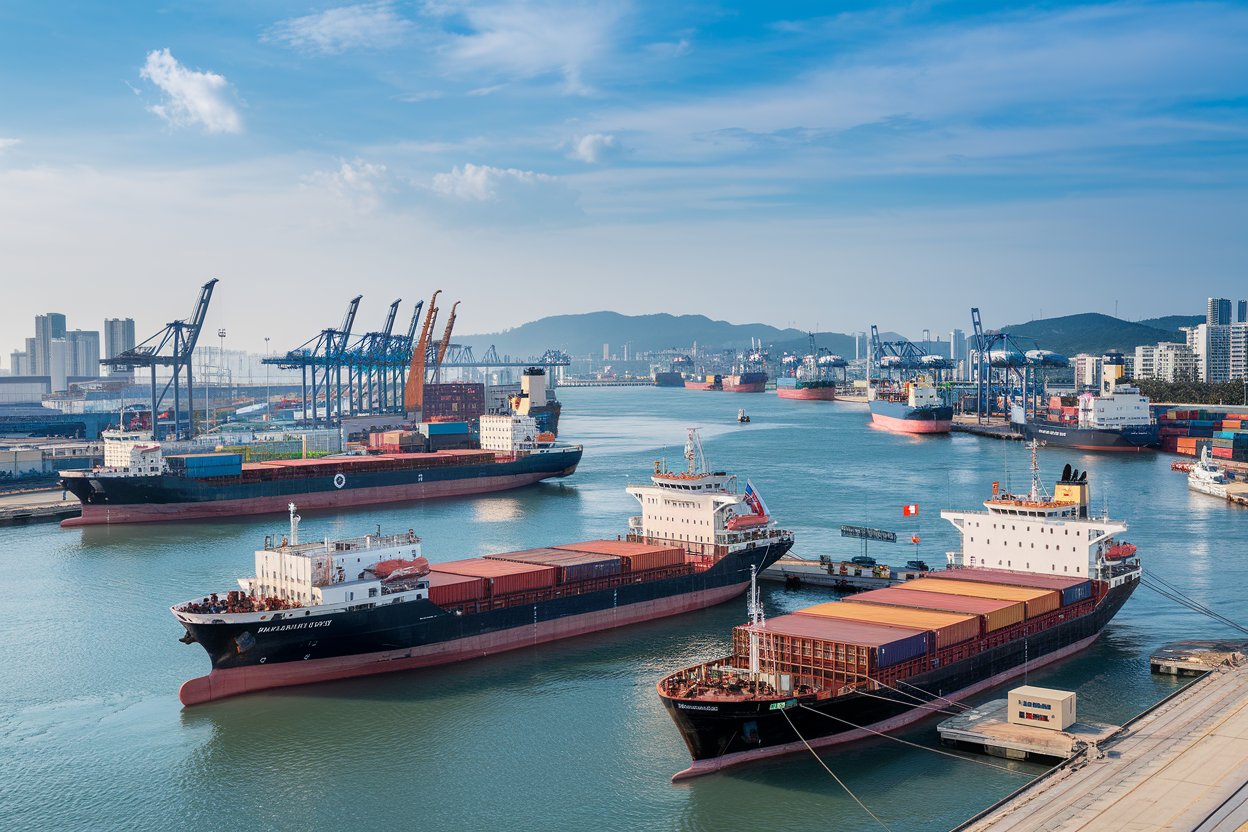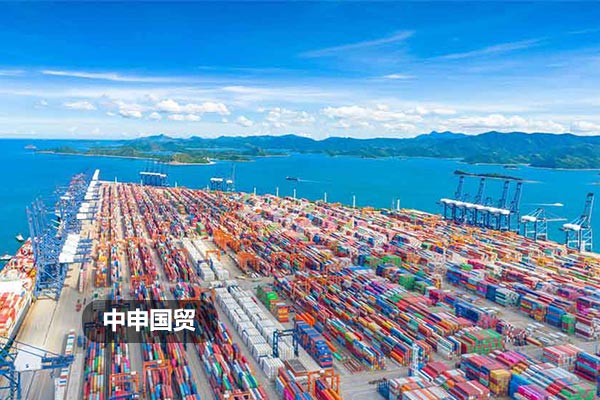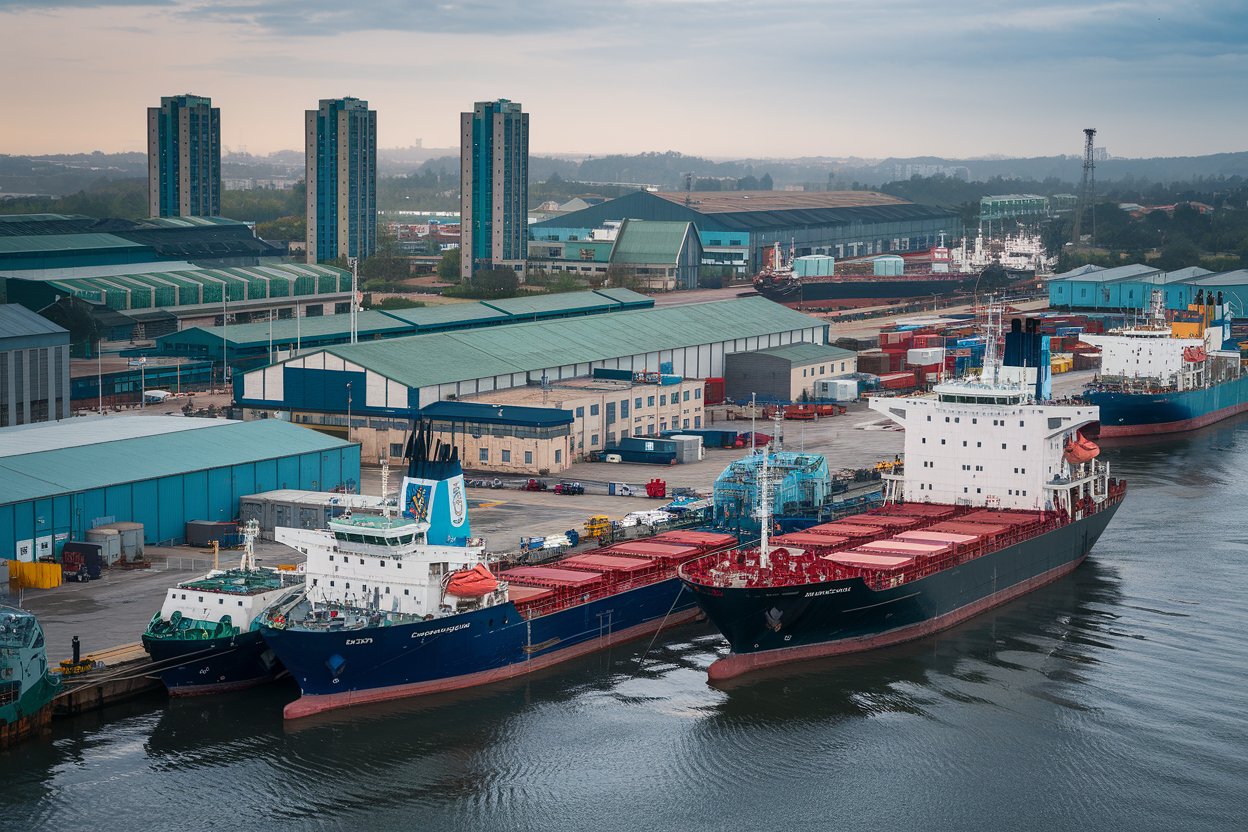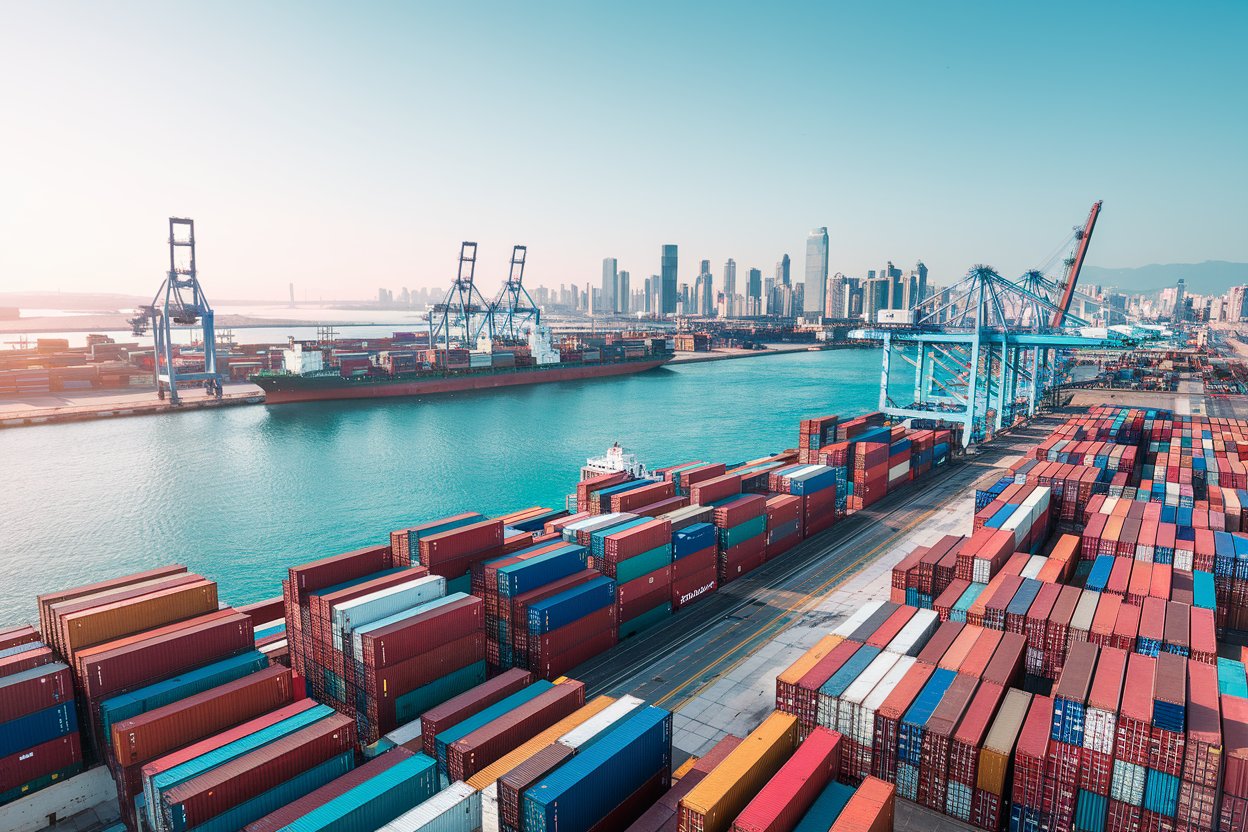- 20 Years of Expertise in Import & Export Solutions
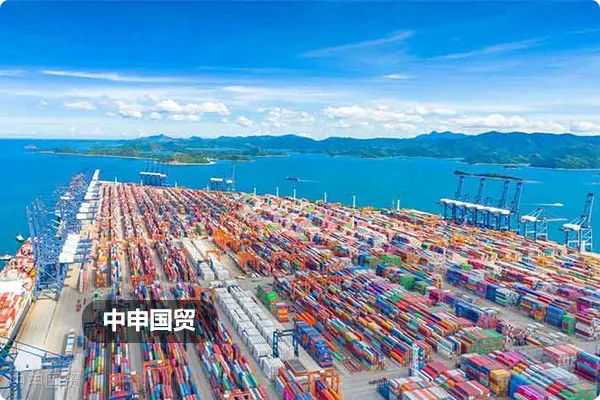
Introduction
In the process of global agricultural modernization, Japan's agricultural machinery and equipment are highly favored for their advanced technology and excellent quality. Importing agricultural machinery and equipment from Japan is of great significance for improving agricultural production efficiency. However, this process involves many complex links, such as document handling, logistics arrangements, response to the international trade situation, and product certification. This article will provide you with a detailed analysis of the entire process and related key points for importing agricultural machinery and equipment from Japan.
Professional document processing and logistics arrangement
When importing Japanese agricultural machinery and equipment, document handling is a crucial link. Documents like the Commercial Invoice, which details the description, quantity, and value of the goods, are an important basis for customs valuation and taxation. The Packing List explains the details of the goods in each package, which is convenient for customs inspection and for the consignee to check the goods. The Bill of Lading, as the transport document for the goods, is even more critical for the transfer of ownership.
Our company has extensive experience in document handling and can ensure that all types of documents are accurate and submitted in a timely manner. We will carefully review every document to avoid delays or extra costs caused by documentary errors. For example, a client once imported a batch of agricultural irrigation equipment from Japan. Due to an inconsistency between the goods description on the invoice and the actual goods, it could have been deemed a false declaration by customs. We discovered this in time, communicated with the supplier for modification, and successfully completed the customs clearance process.
Logistics arrangements are equally crucial. The common modes of transport from Japan to China are?Ocean shipping?and?Air freight?. Sea freight is suitable for large-volume goods and is relatively low-cost, but the transit time is longer; air freight is fast and suitable for urgent or high-value goods, but the cost is higher. We will choose the most suitable mode of transport for the client based on the specific situation of the goods, such as weight, volume, and delivery time. At the same time, we maintain long-term cooperation with several well-known shipping companies and airlines and can obtain competitive freight rates and high-quality services. During the transport process, we will track the cargo's status in real-time to ensure the goods arrive at their destination on time and safely.
Import Processes and Solutions for Different Markets
Southeast Asian market
If the destination for the imported agricultural machinery is the Southeast Asian market, its import process has its own characteristics. First is the import declaration, which requires submitting a detailed import declaration form to the local customs, including detailed information, value, and origin of the goods. Different countries may have different tariff policies and import restrictions for agricultural machinery. For example, Vietnam has lower import tariffs on some agricultural machinery to encourage agricultural development, but at the same time, some specific equipment may be required to meet local technical standards.
In the customs clearance stage, the documents required by the customs of various Southeast Asian countries are not the same. Generally, in addition to the basic commercial invoice, packing list, and bill of lading, some countries may also require a?Certificate of Origin?Certificate of Origin to determine the country of origin of the goods and thus apply the corresponding preferential tariff policy. For agricultural machinery, some countries may also require a product quality inspection certificate to prove that the equipment meets local quality standards.
Our solution for the Southeast Asian market is to conduct in-depth research on the trade regulations and policies of each country and establish close cooperative relationships with local customs brokers and freight forwarders. We understand the documents and requirements for import in advance, assist clients in preparing a complete set of relevant documents, and ensure smooth customs clearance. For example, when importing Japanese agricultural seeders to Thailand for a client, we learned in advance about the special certification requirements of Thai customs for this type of equipment and promptly assisted the client in communicating with the supplier to obtain the relevant documents, avoiding cargo detention at customs.
I. Pre - export Preparation
The Russian market also has its unique features for importing agricultural machinery. In terms of?Foreign exchange settlement?, our company has a significant advantage, which is the convenience of VTB settlement. VTB Bank is an important financial institution in Russia, and through cooperation with VTB, our settlement process in trade with Russia is smoother and more efficient.
The settlement process is usually as follows: after the goods arrive at a Russian port and complete customs clearance, the client receives the goods, and the Russian side makes the payment. We receive the payment through the VTB Bank channel. The bank will conduct a series of reviews and processing to ensure the source of funds is legal and compliant. Compared to other settlement channels, VTB Bank's advantage in trade with Russia lies in its familiarity with the local Russian market and its efficient fund processing procedures. This greatly shortens the settlement time and reduces the risks brought by exchange rate fluctuations. For example, a client who was trading agricultural tractors with a Russian company had a settlement process that would have taken 10 working days, but it was shortened to 5 working days through VTB settlement, which provided convenience for the client's capital turnover.
Challenges and Opportunities in the Current International Trade Landscape
The current international trade situation is complex and ever-changing, which brings many challenges to importing agricultural machinery from Japan. The rise of trade protectionism has led various countries to increase tariffs and set up trade barriers, increasing import costs and difficulties. For example, some countries, to protect their domestic agricultural machinery industry, impose high anti-dumping duties on imported equipment. Exchange rate fluctuations are also a major challenge. The instability of the exchange rate between the Japanese yen and the Chinese yuan can lead to large fluctuations in import costs in the short term.
However, opportunities also exist. With the strengthening of global agricultural cooperation, the demand for advanced agricultural machinery in various countries is constantly growing. As a strong country in agricultural machinery technology, Japan's products are highly competitive in the international market. At the same time, the signing of some free trade agreements has provided more favorable policies for import trade. For example, the free trade agreement between China and ASEAN has lowered trade tariffs between China and Southeast Asian countries, promoting the circulation of agricultural machinery in the region.
Product Certification Services
For agricultural machinery imported from Japan, different markets may have different certification requirements. In the Southeast Asian market, such as Thailand, agricultural machinery may be required to meet local industrial standard certification. In Russia, it may be necessary to pass GOST certification to prove that the product complies with Russian safety, quality, and environmental standards.
Although our company does not directly provide certification services, we will assist clients in understanding the detailed requirements of the needed certifications and provide relevant guidance. We will help clients communicate with the certification bodies and prepare the materials required for certification to ensure that clients can successfully complete the certification process. For example, when a client imported a Japanese combine harvester to Russia, we assisted the client in organizing the equipment's technical parameters, quality inspection reports, and other materials, saving the client time and effort in applying for GOST certification.
Conclusion
Importing agricultural machinery from Japan is a complex process that involves knowledge and skills in many aspects. Through professional document handling, reasonable logistics arrangements, formulating appropriate import process solutions for different markets, responding to the challenges of the international trade situation and seizing opportunities, and moderately assisting clients in completing product certification, the smooth progress of the import business can be ensured. We hope the content of this article can provide you with useful references when importing agricultural machinery from Japan.
Recommended for You
- 威化餅干進(jìn)口代理:從零到一的全流程指南
- 韓國(guó)咖啡進(jìn)口代理全流程指南:?jiǎn)巫C與物流雙核心的專(zhuān)業(yè)服務(wù)解析
- A Guide to Avoiding Pitfalls in Red Wine Import Agency: How to Save a Lot by Choosing Wisely!
- A Complete Guide to German Chocolate Import Agency: Document Compliance, Logistics Temperature Control, and Trade Risk Response
- How Much Can You Earn per Container of Imported French Red Wine? How Professional Agency Services Can Increase Net Profit Margins
Core business
Contact Us
Email: service@sh-zhongshen.com
Recommended for You
Contact via WeChat

? 2025. All Rights Reserved.

